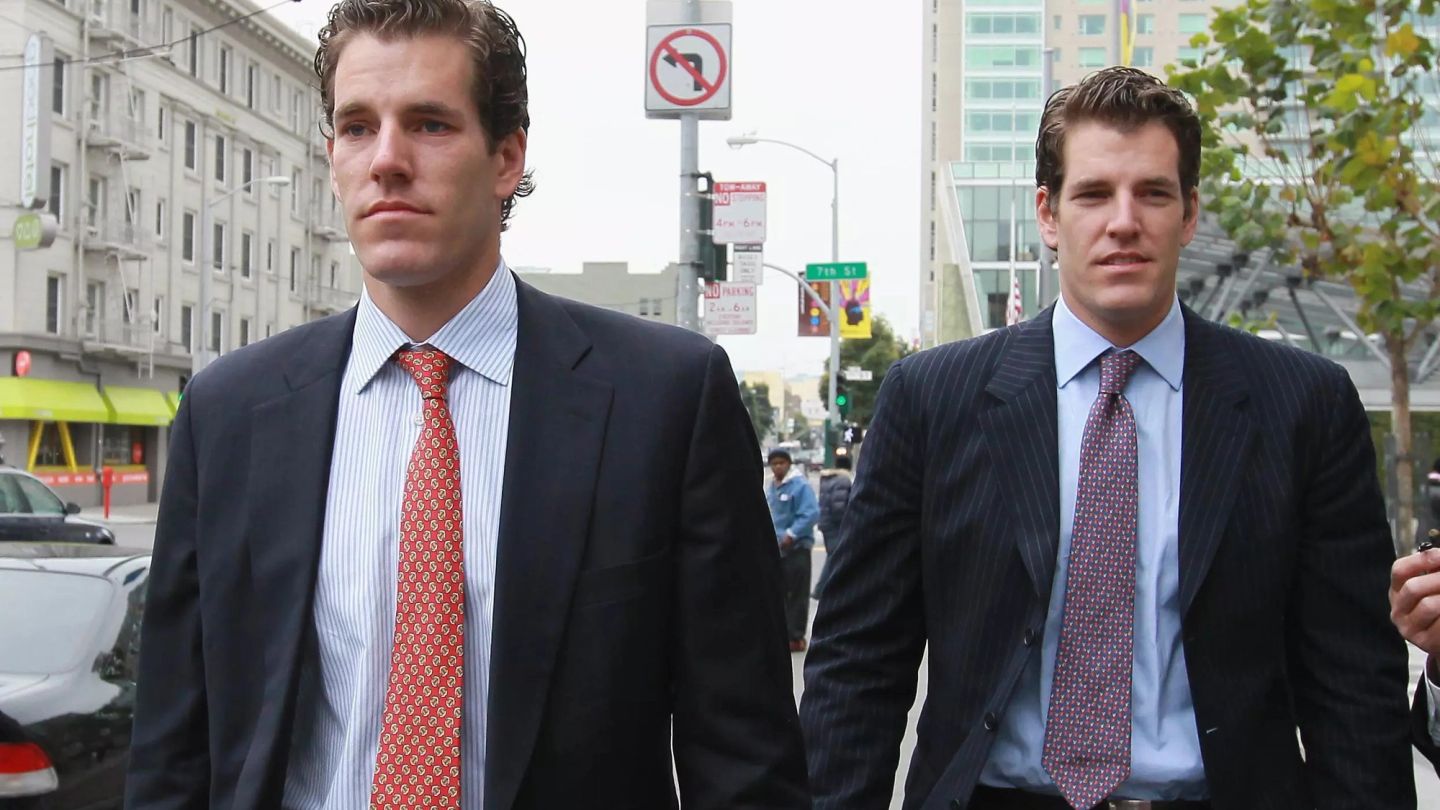

Words: Josh Lee
Tyler and Cameron Winklevoss first rose to prominence when they famously won a $65m settlement from a lawsuit against Facebook in 2011. Now, having invested some of that cash into purchasing what they claimed was around $11m worth of Bitcoin in 2013, both are the payment system’s first ever billionaires. To get a better understanding of who this dynamic duo is, here’s everything you need to know.
Who are they?
The Winklevoss brothers – also known as the Winklevii – are identical twins who are renowned for their legal battle with Mark Zuckerberg in 2004 over the ownership of Facebook. In 2010, their names became immortalised in the 2010 biographical film, The Social Network, which followed all three men’s encounters at Harvard University and their subsequent lawsuits regarding the conception of the website.
In 2008, they rowed for team USA at the Beijing Olympics and finished sixth. Nowadays they’re venture capitalists and entrepreneurs, and earlier this week they become Bitcoin’s first ever billionaires.
Early years, Harvard and Mark Zuckerberg
The gargantuan brothers hail from Southampton, New York and were brought up in Greenwich, Connecticut. In 2000, they enrolled at Harvard University as undergraduates and majored in economics; both earned BA degrees and were also members of the prestigious Porcellian Club (an elitist, all-male organisation) and the Hasty Pudding club (one of Harvard’s oldest affiliated social groups). It was during these years when both siblings encountered Mark Zuckerberg, now CEO of Facebook.
In 2002, Zuckerberg enrolled at Harvard and quickly began to develop programmes such as Coursematch (which allowed students to discover who was attending a particular class) and Facemash (a site which gave Harvard attendees the chance to vote on the attractiveness of their peers).
Consequently, he quickly gained a reputation as a programming prodigy, and his talents were in soon in demand as the Winklevoss brothers and Divya Nerendra (a fellow student) needed Zuckerberg to help write code for a website idea they had – one that aimed to create a virtual community akin to Friendster.
In Autumn 2003, they (with the aid of a few student programmers) created a prototype billed “HarvardConnection”, before Narendra later suggested that the brothers ask Zuckerberg to help finish the site.
“We met Mark, and we talked to him, and we thought this guy seems like a winner,” Tyler Winklevoss told The New Yorker in 2006.
Zuckerberg began working on the site in November, 2003, but continued to pursue his own projects, namely attempting to launch thefacebook.com. Harvard, like most US colleges, gave its students a class directory known as the “facebook”, which included a photograph of each freshman as well as other details such as their name and date of birth. Although Harvard had plans to put this all online, Zuckeberg wanted to get their first.
At the beginning of 2004, the then-19-year-old, with the help of some friends, had launched thefacebook.com, a site which allowed anyone with a Harvard email to join, create a profile (which included a photograph along with other information such as taste in films and books) and connect with fellow Harvardians. Within a day, the site had around 1,500 registrants; the following month, it had extended to campuses at Stanford, Yale and Columbia; and by mid-June it had 150,000 users.
In September of that year, the three founders of HarvardConnection (now called ConnectU) filed a lawsuit in a Massachusetts federal court, claiming that Zuckerberg copied their idea and delayed the launch of their project in order to execute his own.
Following a countersuit (Facebook charged ConnectUwith calumny) and years of court-battling, an agreement settling both cases was finally reached in February, 2008, with the Winklevoss brothers receiving $20m in cash and $45m in Facebook stock.
In 2010, both brothers were played by Arnie Hammer in The Social Network – a film that depicts the hydra-headed controversies over the origin of site.
Bitcoin billionaires
13 years on from having tried and failed to gain control of Facebook, the twins have now become the first Bitcoin billionaires (apart from Satoshi Nakamoto, the exchange system’s enigmatic inventor).
Using $11m of the $65m they’d won in their court case, the brothers invested in the cryptocurrency in 2013, buying approximately 100,00 bitcoin; during that year, it was trading at just $120; as of this week, a single Bitcoin has a value of $11,766, according to coin desk.
Since 2013, neither one had sold a single one of their Bitcoins – rather they’ve just allowed them to accrue value, and it’s evidently paid off.
“We see bitcoin as potentially the greatest social network of all,” Tyler Winklevoss told the Financial Times in 2016.
Last year, the twins launched a digital currency exchange, Gemini, which gives investors (both first-time users and professional traders) the opportunity to buy and sell bitcoin.
Now, it seems they have bigger ideas than just accruing wealth; earlier this year they both attempted to create an ETF for Bitcoin (which would significantly improve the liquidity of the currency), but were denied by the US Securities and Exchange Commission who cited the possibility of fraud. Had they been successful, they would’ve opened the door to a flood of new capital – reports suggest that around $300m could’ve poured into the company’s ETF in its first week. But, despite this setback, the twins don’t look set to give up, with the SEC agreeing to take another look.
Alongside this, the Winklevii have also used their profits to purchase a $250,000 seat on Richard Branson’s Virgin Galactic commercial spaceflight venture. And although it’s not confirmed when flights will take place – Branson has suggested within the next year – one thing is for certain; the Winklevoss brothers will continue to hit new astronomical heights for the foreseeable future.
Confused by Bitcoin? Here’s a simple explanation


